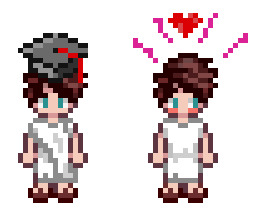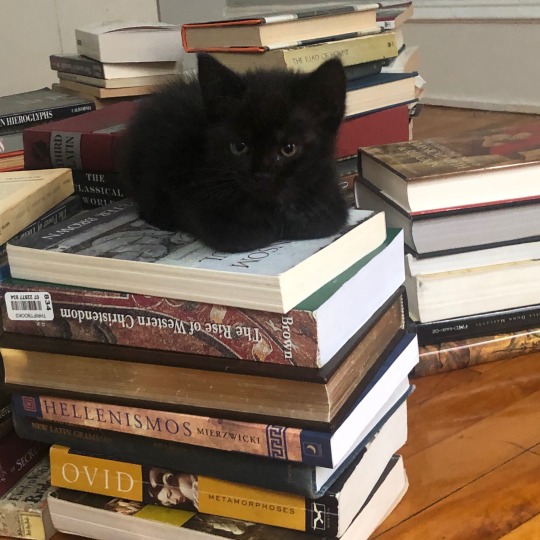Text
Gallus' Love

***
Quae nemora aut qui uos saltus habuere, puellae
Naides, indigno cum Gallus amore peribat? 10
Nam neque Parnasi uobis iuga, nam neque Pindi
ulla moram fecere, neque Aonie Aganippe.
Illum etiam lauri, etiam fleuere myricae;
pinifer illum etiam sola sub rupe iacentem
Maenalus et gelidi fleuerunt saxa Lycaei. 15
Stant et oues circum (nostri nec paenitet illas,
nec te paeniteat pecoris, diuine poeta:
et formosus ouis ad flumina pauit Adonis);
uenit et upilio; tardi uenere subulci;
uuidus hiberna uenit de glande Menalcas. 20
Omnes "Vnde amor iste" rogant "tibi?" Venit Apollo:
"Galle, quid insanis?" inquit; "tua cura Lycoris
perque niues alium perque horrida castra secuta est."
Venit et agresti capitis Siluanus honore,
florentis ferulas et grandia lilia quassans. 25
Pan deus Arcadiae uenit, quem uidimus ipsi
sanguineis ebuli bacis minioque rubentem:
"Ecquis erit modus?" inquit "Amor non talia curat,
nec lacrimis crudelis Amor nec gramina riuis
nec cytiso saturantur apes nec fronde capellae." 30
***
A slightly different translation this time, written for a competition. I've played around with form a lot more than I usually do, but I had fun doing it :)
#virgil#latin#translation#latin translation#classics#ancient rome#ancient literature#ancient poetry#aeneid#georgics#eclogues#latin langblr#rome#tagamemnon#dark academia#latin language#emperor augustus#Augustan rome#augustus#publius virgilius maro#latin literature
65 notes
·
View notes
Text
so metropolitan museum of art has a register of books they’ve published that are out of print and that you can download for free! they’re mostly books on art, archeology, architecture, fashion and history and i just think that’s super useful and interesting so i wanted to share! you can find all of the books available here!
181K notes
·
View notes
Text
The Death of Laocoon (Aeneid 2.199-222)
Now, another terrifying thing happened to the Trojans,
this more severe and more wretched, and troubled our hearts.
Laocoon, chosen as priest of Neptune by lot,
was sacrificing a huge bull at the solemn altar.
But then – and I shudder to speak of it – two serpents
with vast coils were approaching over the peaceful depths of the sea;
they had come from Tenedos and were aiming for our shore.
They raised their erect chests and bloody crests between the waves,
their bodies skimmed the sea behind,
their backs were bent in huge coils.
Foaming, the sea crashed aloud – and now they were approaching our fields,
burning, their eyes were shot with blood and fire,
hissing, they moistened their mouths with rippling tongues -
We scattered at the sight, pale with fear. They made for Laocoon
in a determined battle line, and the first snake,
enveloping the small bodies of his two sons in an
embrace, devoured their wretched limbs with his fangs -
then they seized Laocoon himself as he came to help bringing weapons,
and they tied him up in their vast coils.
Twice they wound around his middle,
twice they wrapped their scaly bodies around his neck
while he tried to break the coils with his bare hands.
Drenched in blood, his ribbons black with poison,
he raised dreadful screams to the stars.
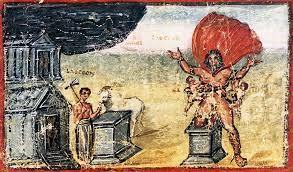
Hic aliud maius miseris multoque tremendum
obicitur magis atque improvida pectora turbat. 200
Laocoon, ductus Neptuno sorte sacerdos,
sollemnis taurum ingentem mactabat ad aras.
ecce autem gemini a Tenedo tranquilla per alta
(horresco referens) immensis orbibus angues
incumbunt pelago pariterque ad litora tendunt; 205
pectora quorum inter fluctus arrecta iubaeque
sanguineae superant undas, pars cetera pontum
pone legit sinuatque immensa volumine terga.
fit sonitus spumante salo; iamque arva tenebant
ardentisque oculos suffecti sanguine et igni 210
sibila lambebant linguis vibrantibus ora.
diffugimus visu exsangues. illi agmine certo
Laocoonta petunt; et primum parva duorum
corpora natorum serpens amplexus uterque
implicat et miseros morsu depascitur artus; 215
post ipsum auxilio subeuntem ac tela ferentem
corripiunt spirisque ligant ingentibus; et iam
bis medium amplexi, bis collo squamea circum
terga dati superant capite et cervicibus altis.
ille simul manibus tendit divellere nodos 220
perfusus sanie vittas atroque veneno,
clamores simul horrendos ad sidera tollit:

#latin translation#virgil#aeneid#laocoon#latin#translation#epic poetry#roman poetry#roman epic#ancient rome#augustus#emperor augustus#tagamemnon#dark academia#classics#poetry
51 notes
·
View notes
Text
Gallus' Love

***
Quae nemora aut qui uos saltus habuere, puellae
Naides, indigno cum Gallus amore peribat? 10
Nam neque Parnasi uobis iuga, nam neque Pindi
ulla moram fecere, neque Aonie Aganippe.
Illum etiam lauri, etiam fleuere myricae;
pinifer illum etiam sola sub rupe iacentem
Maenalus et gelidi fleuerunt saxa Lycaei. 15
Stant et oues circum (nostri nec paenitet illas,
nec te paeniteat pecoris, diuine poeta:
et formosus ouis ad flumina pauit Adonis);
uenit et upilio; tardi uenere subulci;
uuidus hiberna uenit de glande Menalcas. 20
Omnes "Vnde amor iste" rogant "tibi?" Venit Apollo:
"Galle, quid insanis?" inquit; "tua cura Lycoris
perque niues alium perque horrida castra secuta est."
Venit et agresti capitis Siluanus honore,
florentis ferulas et grandia lilia quassans. 25
Pan deus Arcadiae uenit, quem uidimus ipsi
sanguineis ebuli bacis minioque rubentem:
"Ecquis erit modus?" inquit "Amor non talia curat,
nec lacrimis crudelis Amor nec gramina riuis
nec cytiso saturantur apes nec fronde capellae." 30
***
A slightly different translation this time, written for a competition. I've played around with form a lot more than I usually do, but I had fun doing it :)
#latin#translation#latin translation#classics#ancient rome#ancient literature#ancient poetry#virgil#aeneid#georgics#eclogues#latin literature#latin langblr#latin language#rome#tagamemnon#dark academia#publius virgilius maro#augustus#emperor augustus#Augustan rome
65 notes
·
View notes
Text
Yes! This is exactly why I think the Aeneid is so beautiful and tragic
the thing is. the nuance I think a lot of discussion around free will in the aeneid misses. is that it inherently involves both fate and personal action -- aeneas is fated to found rome (in spirit not the actual city), and he will found rome whether he likes it or not, but it will always be his individual choices that get him there. he's not allowed the luxury of relaxing into inevitability, he as a person has to do those things and make those choices and be changed and suffer for it. when jupiter (via mercury) tells him to leave carthage he doesn't put him on a ship and set the winds for rome, he tells him that he'll be a terrible father & leader to his people if he doesn't, and then aeneas has to be the one to get on those ships to sail away himself. I think guilt is so crucial here because aeneas is guilty of the horrible things that happen even if they were going to happen no matter what because he's made to enact fate rather than be an object to it & that's part of the tragedy of the whole thing. being pius is about following but it's also about leading in the cruelest possible way
619 notes
·
View notes
Text
like i know my mutuals don’t look like their icons but also yes they do
82K notes
·
View notes
Text

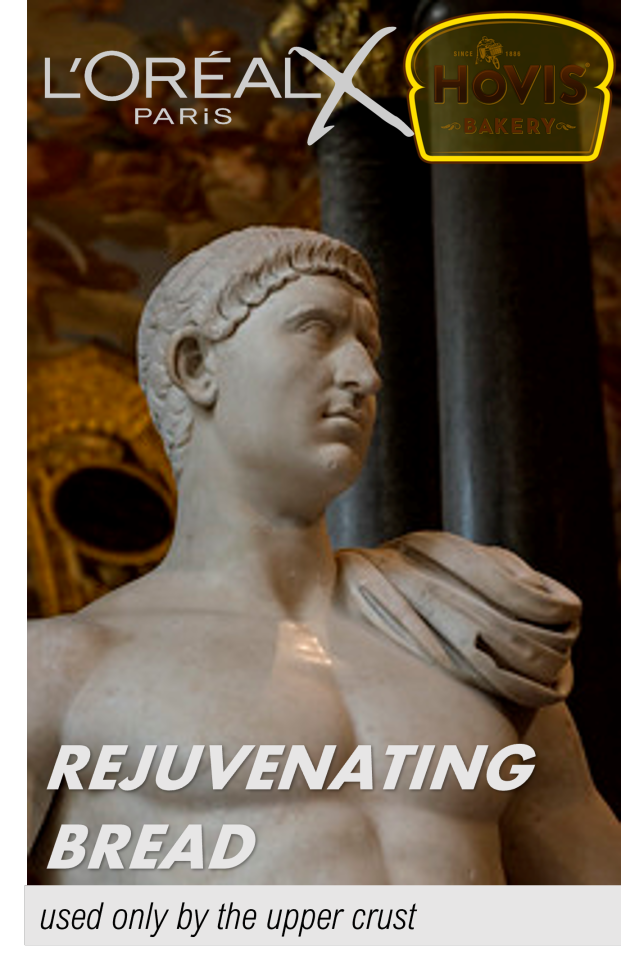
#tagamemnon#ancient rome#ars cosmetica#because you're worth it#bad bread puns#classics#latin fandom#classics memes#dark academia#latin
354 notes
·
View notes
Text
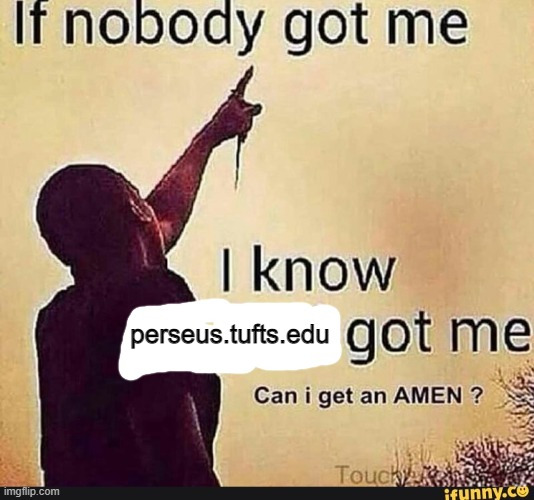
#tagamemnon#ancient rome#classics#latin#ancient greek#classics memes#dark academia#latin literature#ancient history
506 notes
·
View notes
Text
The Death of Laocoon (Aeneid 2.199-222)
Now, another terrifying thing happened to the Trojans,
this more severe and more wretched, and troubled our hearts.
Laocoon, chosen as priest of Neptune by lot,
was sacrificing a huge bull at the solemn altar.
But then – and I shudder to speak of it – two serpents
with vast coils were approaching over the peaceful depths of the sea;
they had come from Tenedos and were aiming for our shore.
They raised their erect chests and bloody crests between the waves,
their bodies skimmed the sea behind,
their backs were bent in huge coils.
Foaming, the sea crashed aloud – and now they were approaching our fields,
burning, their eyes were shot with blood and fire,
hissing, they moistened their mouths with rippling tongues -
We scattered at the sight, pale with fear. They made for Laocoon
in a determined battle line, and the first snake,
enveloping the small bodies of his two sons in an
embrace, devoured their wretched limbs with his fangs -
then they seized Laocoon himself as he came to help bringing weapons,
and they tied him up in their vast coils.
Twice they wound around his middle,
twice they wrapped their scaly bodies around his neck
while he tried to break the coils with his bare hands.
Drenched in blood, his ribbons black with poison,
he raised dreadful screams to the stars.

Hic aliud maius miseris multoque tremendum
obicitur magis atque improvida pectora turbat. 200
Laocoon, ductus Neptuno sorte sacerdos,
sollemnis taurum ingentem mactabat ad aras.
ecce autem gemini a Tenedo tranquilla per alta
(horresco referens) immensis orbibus angues
incumbunt pelago pariterque ad litora tendunt; 205
pectora quorum inter fluctus arrecta iubaeque
sanguineae superant undas, pars cetera pontum
pone legit sinuatque immensa volumine terga.
fit sonitus spumante salo; iamque arva tenebant
ardentisque oculos suffecti sanguine et igni 210
sibila lambebant linguis vibrantibus ora.
diffugimus visu exsangues. illi agmine certo
Laocoonta petunt; et primum parva duorum
corpora natorum serpens amplexus uterque
implicat et miseros morsu depascitur artus; 215
post ipsum auxilio subeuntem ac tela ferentem
corripiunt spirisque ligant ingentibus; et iam
bis medium amplexi, bis collo squamea circum
terga dati superant capite et cervicibus altis.
ille simul manibus tendit divellere nodos 220
perfusus sanie vittas atroque veneno,
clamores simul horrendos ad sidera tollit:

51 notes
·
View notes
Text
On Mortality
No one who remains untouched by suffering and sickness
is mortal; there are children who must be buried,
who must be conceived again, and death is everyone's end.
These things profitlessly bring anxiety to humankind:
earth must return to earth, then from everyone life is
reaped, just like crops: thus necessity commands.

***
This is a translation of Cicero's translation of a passage from Euripides that I found in the Oxford Book of Latin Verse. The original Greek text that Cicero translated from is Euripides, Fragment 757 (from Hypsipyle), lines 122-128. Cicero's translation of this Fragment appeared in his Tusculan Disputations, 3.25.59.
Here is the original Greek:
ἔφυ μὲν οὐδεὶς ὅ[στις οὐ πονεῖ βροτῶν·
θάπτει τε τέκ[να χἄτερα κτᾶται νέα,
αὐτός τε θνῄσκε[ι· καὶ τάδ᾿ ἄχθονται βροτοὶ
εἰς γῆν φέροντες [γῆν. ἀναγκαίως δ᾿ ἔχει
βίον θερίζειν ὥ[στε κάρπιμον στάχυν,
καὶ τὸν μὲν εἶ[ναι, τὸν δὲ μή· τί ταῦτα δεῖ
στένειν ἅπε[ρ δεῖ κατὰ φύσιν διεκπερᾶν;
#cicero#eurpides#latin#ancient greek#translation#latin literature#greek literature#latin translation#classics#dark academia
37 notes
·
View notes
Text
Oxford students be like ‘I know a spot’ then take you to a historical linguistics and comparative philology lecture
#tagamemnon#dark academia#ancient rome#classics#latin#philosophy#philology#linguistics#comparative philology#historical linguistics#Oxford#university#literae humaniores
214 notes
·
View notes
